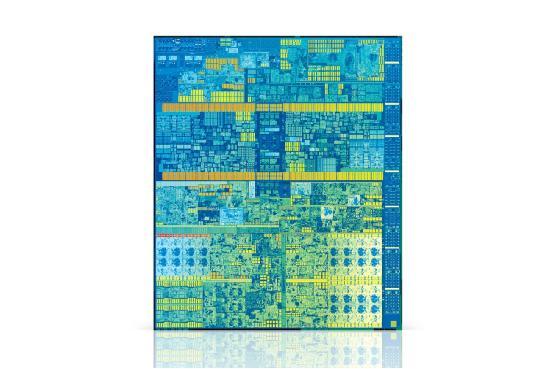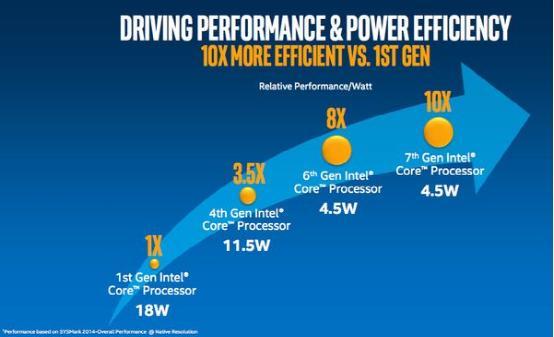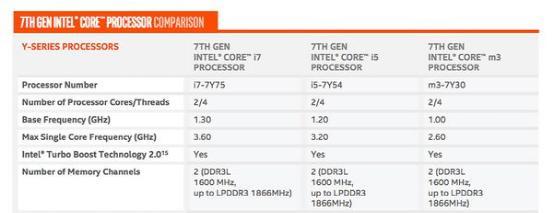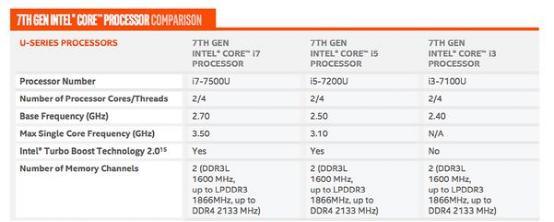The Verge Chinese Station reported on August 30th
Intel has just released a new seventh-generation Kaby Lake processor, and the advent of a new generation of processors also marks the current Skylake has become a mid-range product. Compared to Skylake, Kaby Lake is manufactured using a 14nm process, which has improved efficiency and performance. However, Intel has stated that in the eighth generation of Cannonlake processors in 2017, a more advanced 10nm manufacturing process will be used.

Kaby Lake's announcement also indicates that the Apple MacBook Pro has also been upgraded, after all, Apple chose to completely skip Skylake, and Microsoft's Surface Book also encountered power problems from the Skylake processor, so Microsoft had to carry out A large number of driver updates and firmware upgrades are adapted. And Apple's choice to skip Skylake may also have this consideration, so Intel needs to solve the previous problem through the Kaby Lake processor.

The seventh-generation Kaby Lake processor Intel focused on the experience rather than the hardware configuration. Intel does not focus on the differences between the Kaby Lake and Skylake processors, and how much performance improvement there is. It emphasizes what the next-generation processors can do. Among the most noteworthy are the compatibility of online 4K streaming media, 360-degree video, VR, and AR applications. At the same time, Intel also said that the new processor will provide support for more models for Windows 10 system Windows Hello facial recognition.
However, even if Intel does not emphasize, we must also understand what the new generation of processors in the end. From a performance point of view, the seventh-generation Kaby Lake is 10 times more efficient than the first generation, and Skylake is only eight times that of the first generation. At the same time, Kaby Lake increased its network performance by 19% and its application running rate increased by 12%. Intel said that although the seventh-generation Kaby Lake processor has improved in all aspects, for the average user, the increase in use experience may not be so obvious.

At the same time, Intel stated that notebooks using Kaby Lake architecture processors in the future will be able to reduce the thickness to less than 10 mm, even thinner than the thinnest HP Spectre 13 now. Currently, each PC manufacturer has provided more than 100 different notebook designs, and the release of Kaby Lake will undoubtedly provide more possibilities for notebook design.

It is reported that the seventh-generation Kaby Lake processor will also provide different series including the Core M3, i3, i5, i7, etc. Intel said that products equipped with Kaby Lake processors are expected to officially debut in September this year. (Author: Vlad Savov compilation: Bear)
Click to read the original English
.wxdigi { padding:20px 0; border-top: 1px dotted DBDBDB; } .wxdigi dt { display:inline; float:center; margin-right:17px; } .wxdigi dd strong { display:inline-block; padding-top :0px; color:414141; font-size:14px; } .wxdigi dd { font-size:14px; color:606060; }
 Is life boring? Concerned about Tencent Digital WeChat official (ID:qqdigi), the old driver took you the whole point of new games!
Is life boring? Concerned about Tencent Digital WeChat official (ID:qqdigi), the old driver took you the whole point of new games!